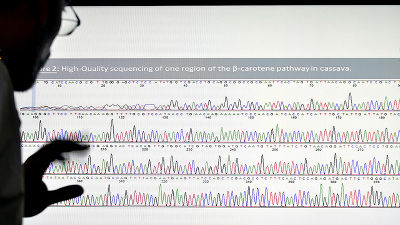MDMA treatment successfully restores lost sociability in mice

3,4-Methylenedioxymethamphetamine (MDMA), a type of hallucinogen, is strictly regulated in Japan under the Narcotics and Psychotropic Substances Control Act, but is said to have the effect of improving sociality. A research team led by Robert Malenka, a psychiatric researcher at Stanford University, reported that administering MDMA to mice with autistic tendencies restored their sociability.
MDMA enhances empathy-like behaviors in mice via 5-HT release in the nucleus accumbens | Science Advances
https://www.science.org/doi/full/10.1126/sciadv.adl6554

Drugs boost serotonin, socialization in multiple autism mouse models | The Transmitter: Neuroscience News and Perspectives
Previous research has revealed that release of the neurotransmitter serotonin in the nucleus accumbens , which plays an important role in reward, pleasure, and fear, is important for promoting social interactions and sociability.
Malenka and her team also found that artificially stimulating serotonin release in the nucleus accumbens of mice carrying autism-related mutations reduced their reluctance to socialize with other mice.

In this study, the research team used MDMA and the serotonin release enhancer
While MDMA stimulates the release of serotonin, CP-94253 activates serotonin receptors, and both drugs take effect within minutes to hours of administration.
The mice used in the experiment were those with mutations in the chromosomal region 16p11.2 associated with autism and bipolar disorder, as well as those with mutations in the genes CNTNAP2 , FMR1 , ACTL6B , and ARID1B . The research team also conducted experiments on mice exposed in utero to sodium valproate , a drug used to treat epilepsy that is believed to be associated with the onset of autism.

'We thought that maybe we would see an effect in one or two of the mouse models, but not in the other models. But in this experiment, we saw a recovery in sociability in all of the mice,' said Malenka.
The team suggested their findings could lead to the development of drugs that could ease the social difficulties of people with autism, but some experts are skeptical.
'Our aim in this study is to restore social interest and social engagement in mice,' said Jeremy Veenstra VanderWeele, professor of psychiatry at Columbia University. 'Many people with autism, despite being very interested in others, struggle socially, so a drug that increases social interest is not going to help them.'

'The concept of this study is very exciting, but based on my experience, I am skeptical of drugs that have been shown to treat mice,' said Elizabeth Berry Kravis, a professor of pediatric neurology at Rush University Medical Center.
As a future goal, the research team says they plan to administer the drug to screened subjects and conduct experiments to see if it has any effect.
Related Posts:







